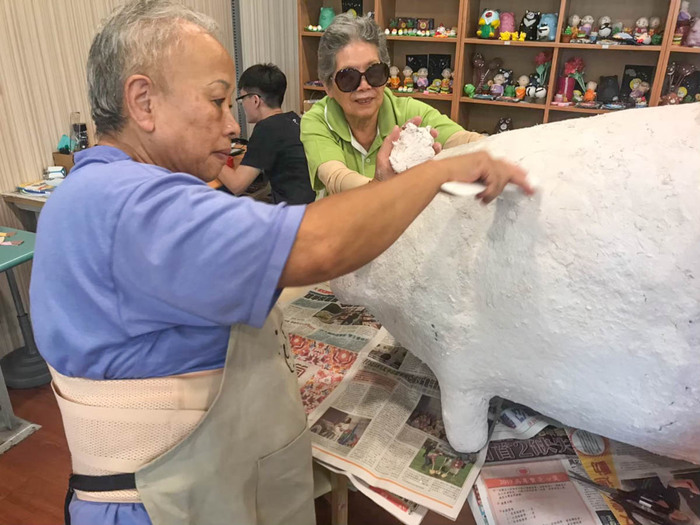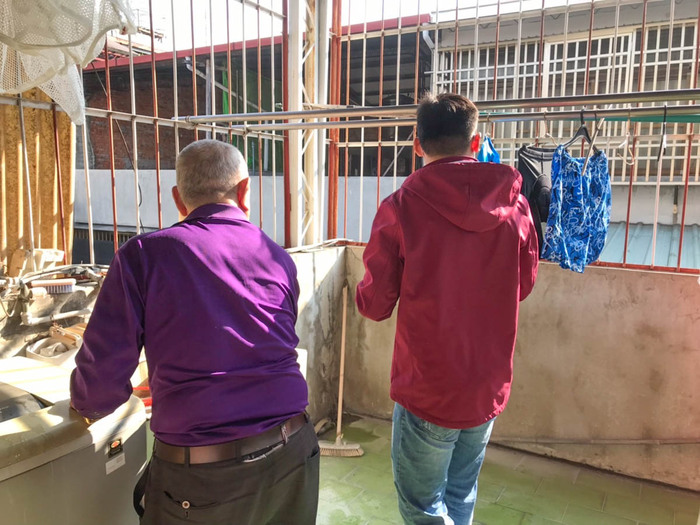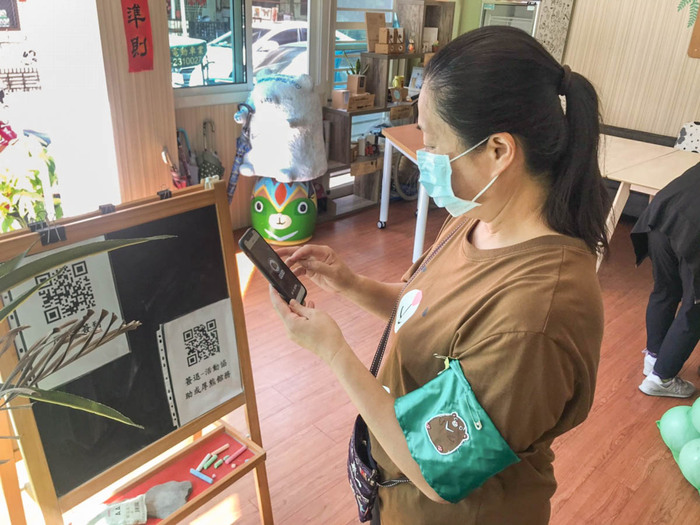Aging with friends: A blueprint for community-based care
Re-imagining the future of caretaking
The greying society of Taiwan is a global issue. According to Ministry of the Interior statistics for January 2021, the country's senior population comprises 16.2% of the total population. As low birth rates and limited resources are sure to adversely affect the ability of families to care for elders living with chronic or debilitating conditions, research institutions like National Chi Nan University have widened their efforts to reimagine long-term care.
Liang Kai-lin (梁鎧麟), an assistant professor with the NCNU Department of Social Policy and Social Work, recalls that he was fully aware of Taiwan's aging trend by junior year as a social work major. Memories of growing up surrounded by elders in a countryside community, combined with what he was learning in college at that time, led to an epiphany: "Medical resources should be made more widely available in local communities, instead of demanding our elders to make their own way to professional hubs."
In 2016, the government rolled out its "Long-term Care 2.0" plan that began with direct service from medical institutes to transferring or sharing responsibilities with community organizations. To help such institutes develop local roots, NCNU is working with Puli Christian Hospital and Quixotic Implement Foundation (愚人之友基金會) to discover new caretaking solutions through the "Homie Puli (厚熊笑狗)" initiative.
Launched 2017 and modeled after the national "Alleyway Care Station 2.0" strategy, the co-op strings together hospital resources, the foundation's social services, and NCNU's academic insights to re-engineer what long-term healthcare can, and should, look like.
From one in 2017 to today's 24 caretaking centers across central Taiwan, the Homie Puli network has received incredible support from the very community that it serves. The university helps to connect medical institutes with the local ecosystem and media representatives, thereby forging a web of interlinked resources for community-based care.
Social inclusion leads the way
Liang explains that long-term care extends beyond service; a system has to be designed first. Moreover, most communities lack the social and medical infrastructure to service their elders and equip their caretakers with the proper knowledge.
"The founding passion of 'Homie Puli' was to become the strongest and most resilient stronghold for our community elders," Liang explains with a laugh. The title is a play on words and homophone for "looking out for each other" in Hokkien, and the concept is inspired by the social inclusion movements stirring in Japan and Europe.
The network flourishes because of the interdisciplinary partners recruited by Homie Puli, and services now include evergreen workshops on living a dementia-free and fulfilling life, arts and crafts, and other courses conducive to lifelong learning.
Homie Puli was envisioned as "a chain of community cafés" that brings to life everyday medical services instead of the impersonal experience of hospitals and clinics – but without the barista services. Even the interior of its headquarters was planned out and decorated together with volunteers and township elders. The participatory experience, as well as the familiarity of environment and faces, helps many seniors come forth with their aging experiences, which in turn aid volunteers' understanding of their needs.
A bank for depositing volunteer hours
Our socioeconomic needs evolve with age. Liang would often think to himself, "What kind of economy would be best-suited for our elders?" Working adults often apply their capitalist lens of monetary units as a measurement of fealty, but the professor thinks that a "Time Bank" exchange would be a better fit.
A Time Bank saves "credit" from those who volunteer their hours, which can then be exchanged for services from other people. In applying theory to real life, however, Liang is still refining the transfer and exchange rate of such credits: "Not everyone sees eye to eye when it comes to the exact value of one human hour."
Equally hard to assign monetary value to is service, especially volunteer service. After discussion with Homie Puli volunteers, Liang developed a new exchange method – volunteer hours for volunteer services. In this construction of a new type of currency for the Puli community, members can donate their time or resources (items, masterclasses, feedback, support).
"We modified many experiences from abroad, tailored their methods to Puli, and customized it so more places across Taiwan can adopt this framework," Liang explains, adding that this was the most direct way of benefitting participants.
For example, Day Rong-fuh (戴榮賦), a professor with the NCNU Department of Information Management, was enlisted to help develop a "Homie Puli" mobile app. Volunteers now have a digital system for logging hours, exchanging services, and receiving updates about the latest public lectures. An e-currency is current in beta development, and brisk discussion has been ongoing concerning regional challenges and future aspirations among app users.
Most volunteers are from the age range of 55 to 70, in which offering assistance comes naturally as they ease into their "third spring." They find fulfillment, learn more about interacting with their own aging family members, and begin to prepare for their twilight years ahead.
"They really do invest a lot of energy in finding good instructors. There is a lot to learn. For me, relations improved with my husband," says Auntie Bi-hsia, a volunteer who, like many others, has been exchanging hours for workshops and talks of her choice.
Aging, the last grand adventure
Liang believes that "aging should be accompanied by grace and health." If people adopt a healthy fitness and dietary routine from an earlier age, less time would be spent on recuperating in bed down the road, he says. Financial burdens alleviated aside, a higher quality of life in old age is the best scenario for all parties involved.
Furthermore, as part of the professor's re-imagining of the future of caretaking, he realizes the need to balance "care" with "living." Liang's emphasis on understanding caretaking from the angle and challenges of everyday life has led him to see entrepreneurial opportunities in every possible industry, from developing senior-specific diets and product lines to games that cater to silver-haired players.
But not even the professor himself will truly understand what old age is like until the time comes. He confesses that he, like many others, fear the unknown, but aging is just another journey in life, and one that we can proactively learn and discuss about in schools, communities, and all Homie Puli cafes. "We only age once, so I have no way of knowing yet."




